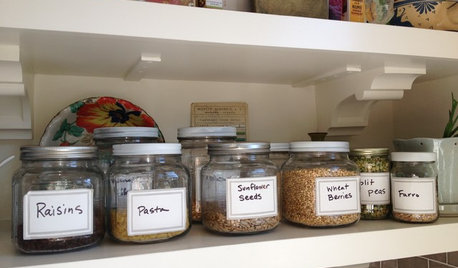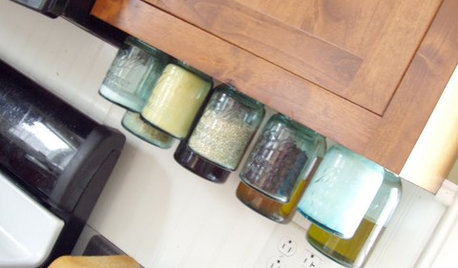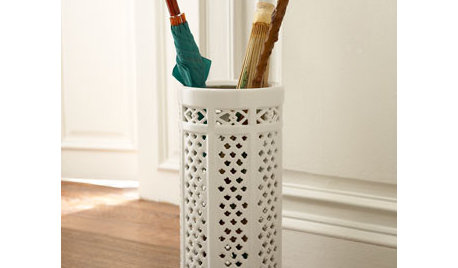organic honey ??
claudia_1078
19 years ago
Related Stories

FARM YOUR YARDHello, Honey: Beekeeping Anywhere for Fun, Food and Good Deeds
We need pollinators, and they increasingly need us too. Here, why and how to be a bee friend
Full Story
KITCHEN STORAGEArtful Organizers: Jars for Pretty Pantry Displays
Ditch the disheveled look of mismatched boxes and bags for colorful or clear pantry jars in an appealing arrangement
Full Story
KITCHEN DESIGNGet It Done: Organize Your Kitchen Drawers
Clear 'em out and give the contents a neat-as-a-pin new home with these organizing and storage tips
Full Story
ORGANIZINGSmall Steps to Organizing Success
Take care of bite-size projects, and your home's big picture will be an organized dream before you know it
Full Story
KITCHEN DESIGNGet Organized: Easy DIY Mason Jar Storage
Create a clever under-cabinet pantry system with pretty vintage jars
Full Story
ORGANIZING10 Principles of Organizing That Work in Every Room
Use these ideas to make it easier to find and put away your things
Full Story
ORGANIZINGHouzz Call: Show Us How You're Getting Organized
If you’ve found successful ways to declutter and create order at home, we want to hear about it. Share your ideas and photos!
Full Story
KITCHEN DESIGNGet Organized for Holiday Baking
Before you crack that first egg, establish a game plan for stress-free success
Full Story
HOUSEKEEPING7-Day Plan: Get a Spotless, Beautifully Organized Bedroom
Create a sanctuary where you can relax and dream without the nightmare of lurking messes
Full Story
PRODUCT PICKSGuest Picks: 22 Mudroom Storage and Organizing Essentials
Keep April showers in check with an entryway arsenal of stylish pieces for umbrellas, raincoats and muddy shoes
Full Story





tarheit
ccrb1
Related Professionals
Beachwood Landscape Architects & Landscape Designers · Glassmanor Landscape Architects & Landscape Designers · Holland Landscape Contractors · Holtsville Landscape Contractors · Kaneohe Landscape Contractors · Leicester Landscape Contractors · Melrose Landscape Contractors · Palatine Landscape Contractors · Paterson Landscape Contractors · Pleasant Hill Landscape Contractors · Ponte Vedra Beach Landscape Contractors · Snoqualmie Landscape Contractors · Sun Valley Landscape Contractors · Shenandoah Landscape Contractors · San Pablo Landscape Contractorsclaudia_1078Original Author
beefiend